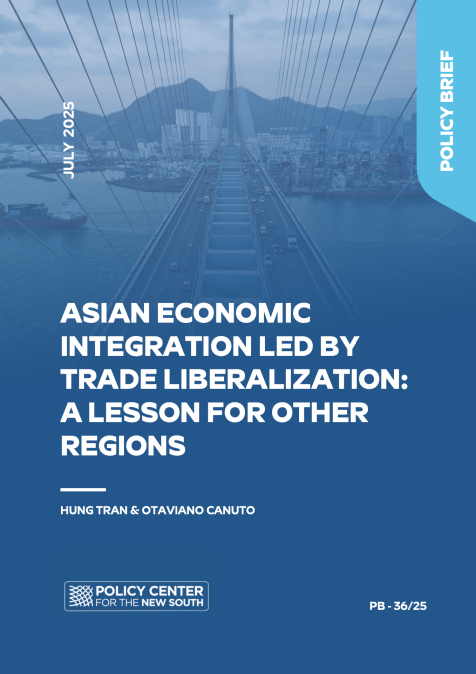Publications /
Policy Brief
This paper was originally published on t20brasil.org
The resurgence of Neo protectionism as a reality is creating a pressing need to establish New Industrial Policies (NIPs) capable of striking a balance between Global Value Chains (GVC) managers' quest for efficiency and policy makers' need for more increasing resilience or national security in a turmoiled geopolitical landscape. Furthermore, although NIPs might pursue legitimate non-economic objectives, they are often captured by vested interests, resulting in protectionist measures. These policies produce negative spillovers, jeopardizing other countries’ development perspectives. This policy brief posits that countries embracing industrial policies with trade diversion components must allocate efforts to implement additional trade liberalization in sectors where the affected exporting countries have comparative advantages as compensation for the negative spillovers their unilateral domestic policies impose on third countries. This highlights the need to establish a structured system that penalizes protectionist countries for exceeding predetermined limits on subsidies and distortive measures. This policy brief also recommends that advanced economies implementing industrial policies with high amounts of embodied subsidies contribute to an international fund dedicated to financing developing economies' access to new green technologies. This approach acknowledges the undeniable push towards aggressive industrial policies, yet simultaneously strives to establish a framework to temper this emerging trend. This mechanism aligns with the principles of economic fairness and encourages nations to adopt less distortive behaviors in their pursuit of economic security or resilience to shocks.










